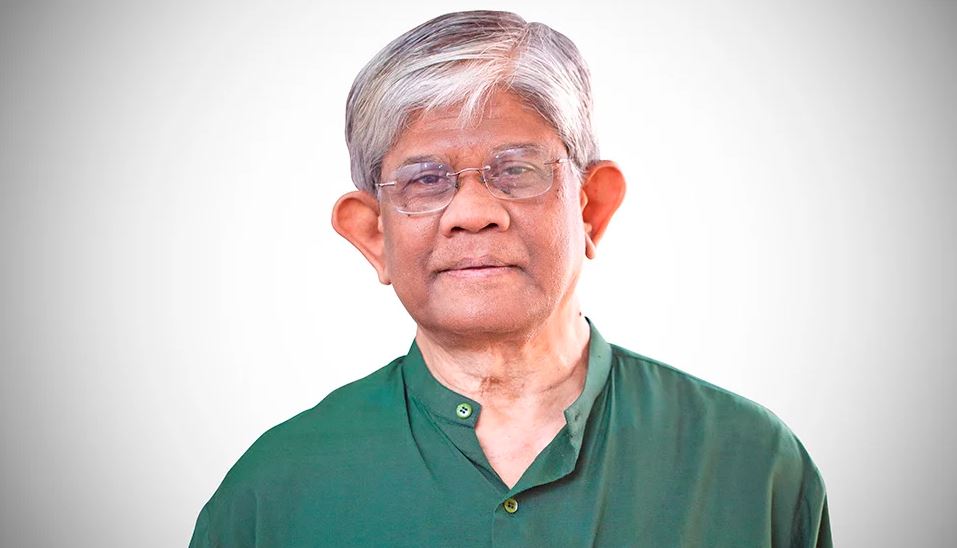News Flash
News Flash

DHAKA, Sept 7, 2025 (BSS) - Finance Adviser Dr Salehuddin Ahmed today sought cooperation and blessings from all concerned so that the interim government could turn this country into a better one for the future generation.
“We’re doing good and we’re trying to ensure betterment of the country,” he said while addressing the Book Launch Ceremony of “Bangladesher Rajnoitic Orthonity” authored by Dr. Muhammad Fouzul Kabir Khan, Adviser, Ministry of Power, Energy and Mineral Resources; Ministry of Road Transport and Bridges; and Ministry of Railways.
Director General of Bangladesh Institute of Development Studies (BIDS) Dr A. K. Enamul Haque moderated the event at the BIDS Conference Room.
Adviser to the Ministry of Environment, Forests and Climate Change Syeda Rizwana Hasan and Adviser to the Ministry of Cultural Affairs Mostafa Sarwar Farooqi spoke.
Dr. Hossain Zillur Rahman, Executive Chairman, Power and Participation Research Centre (PPRC), Matiur Rahman, Editor, Prothom Alo, Former Lead Economist of the World Bank Dhaka Office Dr Zahid Hussain and renowned environmental expert Dr Ainun Nishat also spoke.
Claiming that the performances of Bangladesh in various fronts over the last few months were not bad, the Finance Adviser said those who do not try to see anything positive would not find anything. “We’ve now come to a position after overcoming various barriers and obstacles and there is no way to deny it,” he added.
He said had there been no corruption coupled with some other issues, Bangladesh could have progressed further.
Expressing his high hope that the successive government would carry forward the initiatives of the interim government on various reforms, Dr Salehuddin said hopefully the reform initiatives would continue.
He said that the government has been trying to instil a value that they are doing everything without any ill intention. “Bangladesh is really progressing and you’ll have to see like half glass full not half glass empty,” he said.
Noting that politics also influences economics, the Finance Adviser said that the politicians should have political will, patriotism and passion for the country, it’s not mean only to grab power by any means.
Adviser Syeda Rizwana Hasan said that it is not possible to carry out full-scale reform in different areas within a span of just one and half years rather it is possible to initiate the process of reforms.
She also opined that the already accomplished reforms might confine into in papers if the progress which has been made over the months could not be sustained while there is no such significant changes in the political and economic fronts.
Adviser Dr Muhammad Fouzul Kabir Khan said that the practice of economy has enhanced within the government while everything is now being established through due process.
He alleged that a massive scale corruption took place during the past regime in three ministries that he is currently in charge namely the Ministry of Power, Energy and Mineral Resources, Ministry of Railways and the Ministry of Road Transport Bridges.
He informed that an expenditure of Taka 45,000 crore has been cut from the allocations of these ministries while there is now “no deal before the deal”.
He also hoped that the next government would carry forward the trend of ‘competition’ in the procurement process.
Adviser Mostafa Sarwar alleged that unethical practices were there in the economy during the past regime.
Eminent economist Dr Hossain Zillur Rahman said that the country was suffering from ‘corruption syndrome’ during that past regime and it is very important to overcome that syndrome.
He also opined that the country needs to attain the milestone of election in the coming months.
Another renowned economist Dr Zahid Hussain stressed the need for addressing the challenges in the banking sector, scarcity of energy, enhancing efficiency at ports and prudently dealing with policy support to tackle the high cost of doing business.